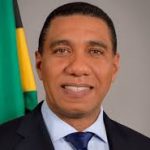A Foreign Policy in the time of Covid – #TrinidadandTobago

by Deodat Maharaj

Congratulations to Dr. Rowley and his team for their electoral victory and best wishes for the new term.
Much has been written and said about the efforts needed at the national level in this time of Corona. I wanted to share some thoughts on how we function externally. Operating in the international arena under normal circumstances is difficult, but doing so in a rapidly changing and increasingly complex Covid-19 world is even harder. There are immense challenges but also opportunities as we seek to recover and build resilience following the onslaught of the coronavirus on the entire planet.
One key challenge is recovering from the economic fall-out. We are seeing first-hand the huge economic impact of Covid-19 with the loss of jobs and livelihoods. The limited fiscal space of the state represents a major hindrance to fully meet the needs of the most vulnerable amongst us. Notwithstanding these constraints, we must build a robust and resilient path to prosperity, one that can weather future shocks.
The decisions we make now will define our future as either one with a transformed and more robust economy, or one haunted by economic uncertainty. We know that government must work in partnership with a wide cross-section of the national community including business and civil society to execute an effective response for sustained recovery. At the same time, our foreign policy is a vital tool in helping to respond and recover from the adverse impact of Covid-19. Our engagement with actors in
the regional and international environments can help forge a pathway to resilience. There are a few key pillars to which we must anchor our foreign policy.
Firstly, regional integration is more important than ever. Simply put, we cannot go it alone. We must shore-up our existing markets and create new ones in the Caribbean. CARICOM markets and those in the larger Caribbean such as Cuba and the Dominican Republic are vital. Continued investments in regional institutions will be crucial whilst ensuring that they are fit for purpose to help meet our economic needs and those of the Region in these unprecedented times. We must also play our part in the leadership of regional and international institutions. Jamaica is a good example of a country that does this with excellence. We should follow a similar approach which helps to shape the agenda of these institutions in the interest of countries like ours.
Secondly, the importance of advancing our economic interests through our foreign policy must be a priority with Embassies and High Commissions being vital outposts. They must redouble efforts to help create new markets for our goods and services, getting precious foreign direct investment and steering tourists to our shores. Close collaboration by the Ministry of Foreign and CARICOM Affairs with the Ministry of Trade and Industry as well as the Ministry of Tourism, Culture and the Arts is vital. All three
need to work in tandem with the business community. The staff posted overseas must reflect this new reality with training provided to pursue a business-oriented foreign policy. Agility, enterprise and proactiveness should be the mantra of our overseas personnel.
Thirdly, given our financial challenges and the high cost of borrowing from the international lending institutions, accessing finance on affordable terms is an imperative. Efforts by the Caribbean to secure concessional finance have yielded sub-optimal results. This is because we are largely classified as either high or middle-income countries. This must change. The international financial institutions have repeatedly stated that they recognize the unique need of small islands like ours to get affordable
finance. Unfortunately, the rhetoric has not been matched by action. We must use our numbers as Caribbean countries to make a breakthrough at the World Bank and the Organization for Economic Cooperation and Development so that our vulnerability can be used as a criterion for accessing concessional finance. To heighten the chances of success we must establish an alliance with the Pacific countries who are in precisely the same situation. In the international arena, there is strength in
numbers.
Finally, the forging of new partnerships is vital, especially with non-traditional partners. Rising Africa represents a massive opportunity. We already have inextricable historical and cultural connections with
fast growing Africa. We now need to build a commercial and business relationship. The African Continental Free Trade Area is the largest free trade area in the world in terms of the number of participating countries. This creates an opportunity that we cannot miss. We need to build on the start we have with Ghana and ramp-up efforts with other countries on the continent such as the emerging gas giant, Mozambique as well as Tanzania where we can share our experience and expertise.
The recently appointed Minister for Foreign and CARICOM Affairs has a big but not insurmountable task. Going forward, there must be close collaboration with the Ministry of Trade and Industry, the Ministry
of Tourism, Culture and the Arts and business to establish a compact to upscale our trade, tourism and investment efforts. There must be a ramping-up of efforts to attract and access affordable finance. We
also need a roadmap for new partnerships with fast-tracked implementation. Time is of the essence.
Deodat Maharaj is a national of Trinidad and Tobago and international development consultant. He has served with the Commonwealth as its Deputy Secretary General and worked with the United Nations
globally. He can be contacted at: deodatmaharaj@gmail.com
Source: CARICOM TODAY

 Previous Post
Previous Post Next Post
Next Post